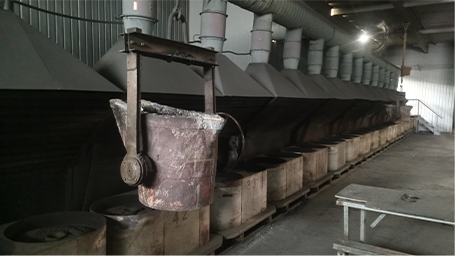നവം . 30, 2024 07:48 Back to list
how to tell if brake drums are bad
How to Tell If Brake Drums Are Bad
Brake drums play a vital role in your vehicle’s braking system, particularly for vehicles equipped with drum brakes. Ensuring that your brake drums remain in good condition is crucial for your safety on the road. Over time, brake drums can wear out or become damaged, leading to a decrease in braking performance. Here’s how to identify if your brake drums are bad.
1. Listen for Unusual Noises
One of the first signs that your brake drums might be in trouble is unusual noises when you apply the brakes. A high-pitched squealing or grinding sound can indicate that your brake shoes are worn down to the metal, which may mean that your brake drums have also sustained damage. If you hear clunking or popping noises, it might signify a more serious issue that requires immediate attention.
2. Pay Attention to Vibration
If you experience vibrations when you press the brake pedal, your brake drums could be out of round or warped. This issue often leads to uneven contact between the brake pads and the drum, resulting in reduced braking efficiency. When you press down on the brake pedal and feel a pulsation or vibration, it’s a clear signal that it’s time to inspect your brake drums.
3. Check for Visual Signs of Wear
how to tell if brake drums are bad

Regular visual inspections of your brake system can help you catch problems early. Look for wear indicators on the brake shoes, and examine the surface of the brake drums for grooves, cracks, or discoloration. If you notice that the surface is uneven or significantly worn, it may be time to replace the brake drums.
4. Monitor Brake Performance
Take note of how your vehicle responds when braking. If you find that your vehicle requires more distance to stop or that the brakes feel “soft” or spongy, it could be a sign that your brake drums are not functioning as they should. Poor brake response can indicate that the brake fluid is contaminated or that other components are malfunctioning alongside the drums.
5. Inspect for Heat Buildup
After a long drive or when descending a steep hill, brake drums can generate excessive heat. If you touch the drums and find that they are unusually hot (beyond normal operating temperatures), it could mean that they are failing to dissipate heat properly. Overheated drums can lead to diminished braking power and could even create a hazardous situation.
Conclusion
Regular maintenance and prompt attention to potential issues can extend the lifespan of your braking system and ensure your safety on the road. If you suspect that your brake drums are bad based on the signs mentioned above, it is advisable to consult a professional mechanic. Ignoring brake problems can lead to more significant issues and pose a risk to you and others on the road. Always prioritize brake safety, and when in doubt, have your vehicle inspected. A small investment in maintenance can save you from costly repairs and ensure a safer driving experience.
-
[Product ]-[Company Name]|[Core Function 1]&[Core Function 2]
NewsJul.22,2025
-
HINO Advanced Machinery Solutions - LONGYAO COUNTY YIHANG MACHINERY | Industrial Efficiency&Customization
NewsJul.21,2025
-
HINO Machinery Solutions - LONGYAO COUNTY YIHANG MACHINERY MANUFACTURING CO.LTD | Precision Engineering, Customizable Configurations
NewsJul.21,2025
-
HINO Machinery Solutions - LONGYAO COUNTY YIHANG MACHINERY MANUFACTURING CO.LTD | Precision Engineering, Customizable Configurations
NewsJul.21,2025
-
HINO Machinery Solutions - LONGYAO COUNTY YIHANG MACHINERY MANUFACTURING CO.LTD | Precision Engineering, Customizable Configurations
NewsJul.21,2025
-
HINO Industrial Solutions|Precision Engineering&Energy Efficiency
NewsJul.21,2025
